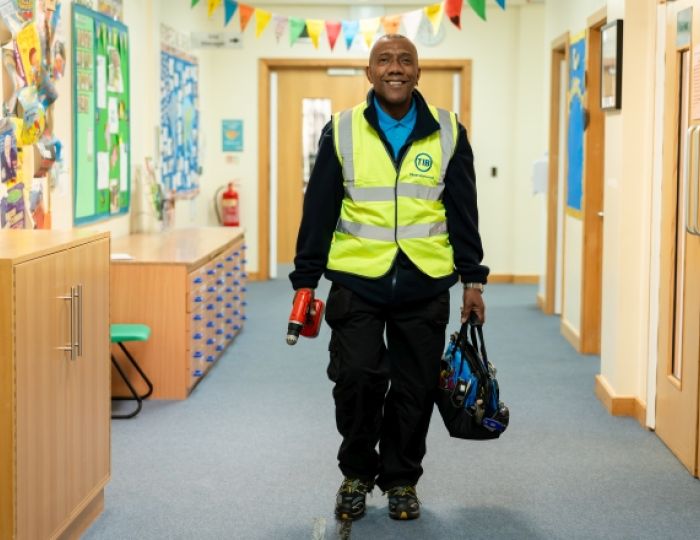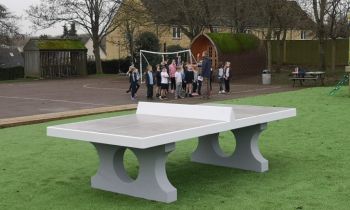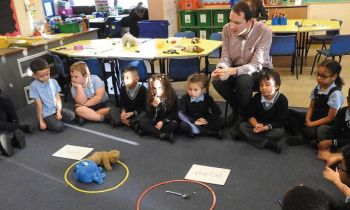With the UK’s education technology sector set to be worth a whopping £3.4bn in 2021, there are now hundreds of technologies being targeted at primary schools hungry to take advantage of innovative teaching aids and admin-cutting tools. But are all these technologies made equal? Of course not.
My advice to primary leaders considering any new technology is to ask what role schools themselves have played in its development. Co-production - suppliers and schools working together to develop technologies – demonstrates, at a basic level the technology answers a real need and takes into account direct teacher feedback.
For ambitious primary schools, keen to innovate, engaging in coproduction projects can return preferential and cost-effective access to state-of-the-art technologies.
However, such projects done wrong can be a resource-draining exercise. In my position as a vendor, Multi Academy Trust board member and primary school governor, I understand both sides.
Co-production can be a rewarding exercise for both school and supplier if both parties are clear on the terms. For schools considering such a partnership there are questions they need to consider:
1 | What are the vendor’s real intentions?
In education, co-production is fundamental to make sure suppliers deliver what teachers actually need, rather than what they think teachers need. Therefore, whether the vendor in question is truly entrenched in the education community really matters. This means looking past the marketing and questioning who the people behind the product are and where their interests really lie.
Do they have experience within education – putting effort into understanding educational needs - or are they on the periphery, selling in? That means asking probing questions; their background, external roles, what impact, evidence and research do they have to support their approach? You need to be confident that they are as grounded in education as they are in technology.
If you’re considering a longer-term co-production relationship with a supplier it’s essential they don’t isolate technology from teaching. That means they are as focused on working with teachers on pedagogical development as they are on technological innovation.
Again, this is why it is so important to know the people behind the product and know whether their interest extends to pedagogy beyond technical processes.
2 | Does the project align with our school’s digital strategy?
Before engaging in any edtech project, schools need to ask; does this align with our digital strategy? If your school hasn’t defined its digital strategy, then be very wary of committing to any edtech project!
In my experience, primary schools tend to lag slightly behind their secondary colleagues in setting a digital strategy, mainly due to the perception that it requires a large IT team to do so. In fact, a digital strategy is a joint effort that at its simplest, is a plan of what you want to achieve and why.
With this in hand you can then assess whether co-production will pay off. There’s little point agreeing to test an application which doesn’t result in impact where you need it. You may be offered any number of incentives to test a product but remember, just because something’s free doesn’t mean it’s not expensive.
The main cost of co-production is usually time; implementation, training, feedback all adds up. If that cost cannot be attributed to an identified, long-term key objective, it’s a waste.
While devising a digital strategy can seem like a daunting task there are guides and expertise available to help.
3 | What should we expect and how closely to engage?
Every co-production project will be different. It could involve working with an existing supplier on current solutions, testing new or refined features. Teachers will already be using the product, know its strengths and weaknesses and may already have clear ideas for improvement and evolution.
Alternatively, it could be beta testing a product, putting a solution through its paces prior to release, providing early access to discounted or free versions of new technology, which can be exciting.
It might be starting at the drawing board and helping shape a new solution to meet a current need. However, testing or collaborating on specification can create extra work for teachers who need to be trained, and commitment to reporting and providing feedback.
That’s why it’s so important to reflect on your digital strategy.
Will the time and effort required get us closer to our goal? If it aligns then make sure you understand and agree with the level of support and training teachers will be given, the mechanisms to enable fast, streamlined feedback and the added extras you’ll access as part of the scheme.
Don’t be afraid to ask the question to yourselves – “do we get as much or more out of this relationship than we put in?”
Don’t be guinea pigs, be partners
Let’s be clear. Co-production is about shaping and polishing solutions so they are the best they can be. That means suppliers must be transparent about why the technology exists and any issues they are seeking to solve.
With that in mind co-production is not about putting ill-designed, half-finished products in the classroom, using students as human guinea pigs! No supplier should expect a school to risk student attainment or teacher wellbeing in this way – if they are, walk away.
Seek a co-production partner that is open and honest, understands and appreciates your digital strategy, is embedded in education and can clearly demonstrate they’re in it for the right reasons.
Co-production in action
Dogsthorpe Infant School, in Peterborough, reaped the benefits of co-production, being instrumental in the development of NetSupport’s primary classroom observation technology ReallySchool.
“Observing and assessing each pupil every day to gauge their progress is a huge task. We tried several different solutions to try to make the process easier, but most of them only partially suited our needs, which caused more problems than they solved. When NetSupport approached us to test and feedback on ReallySchool we were keen but also a little wary of the time it may take. However, we made sure to understand how the process would work and our experience of co-production has been overwhelmingly positive.” Becky Waters, headteacher
“We knew that, in theory, ReallySchool would save us a lot of time – but it was great to test that out and prove it to ourselves. Knowing we’ve played a role in making the technology as useful as can be is really satisfying – and of course, we’re glad to have had the benefit of early access. We can now tailor our teaching and learning so much more and be more active with planning, instead of simply rushing to complete our observations each day.” Rachel Jordan, EYFS learning and teaching manager
Al Kingsley is the Group MD at NetSupport.










